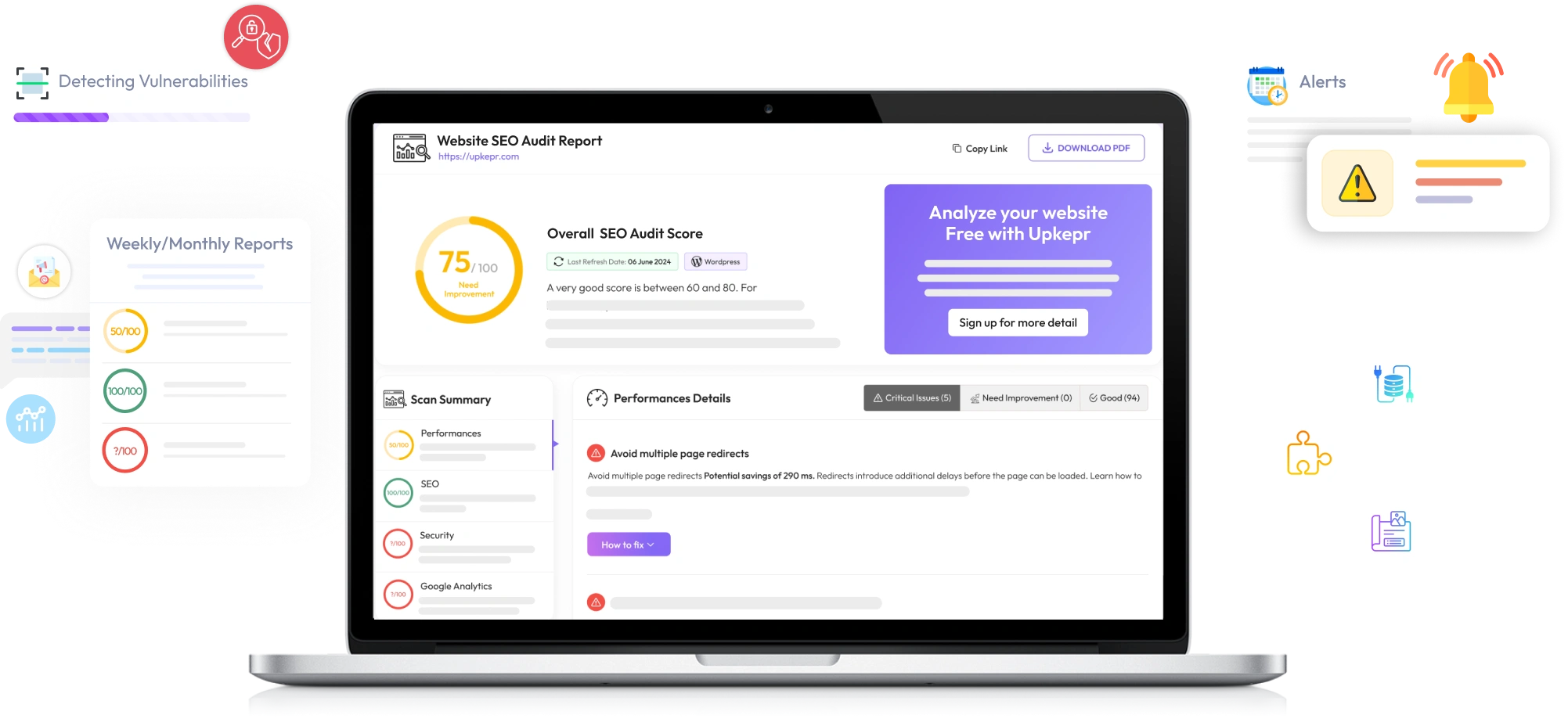Why WordPress Websites Are Targeted: Vulnerabilities Explained

Strong 8k brings an ultra-HD IPTV experience to your living room and your pocket.
WordPress powers over 40% of the internet, making it the most popular content management system (CMS) in the world. While its widespread usage is a testament to its flexibility and user-friendliness, it also makes WordPress websites a prime target for hackers. Cyberattacks on WordPress sites are not uncommon, often exploiting vulnerabilities in outdated software, plugins, themes, and configurations.
In this blog, we’ll explore why WordPress websites are targeted, the common vulnerabilities hackers exploit, and how tools can help protect your site.
Why Hackers Target WordPress Websites
The popularity of WordPress makes it a lucrative target for cybercriminals. Here are some key reasons why hackers focus on WordPress websites:
1. High Market Share
With millions of websites using WordPress, it provides a large attack surface for hackers. By targeting known vulnerabilities, attackers can exploit a significant number of sites at once.
2. Open-Source Platform
While the open-source nature of WordPress encourages innovation and collaboration, it also means that hackers can access the core codebase. This allows them to identify and exploit vulnerabilities, especially in outdated versions of WordPress.
3. Third-Party Plugins and Themes
WordPress relies heavily on plugins and themes for added functionality and customization. However, poorly coded or outdated plugins and themes are among the most common entry points for hackers.
4. Lack of Regular Updates
Many website owners fail to update their WordPress core, plugins, or themes regularly. This leaves their sites vulnerable to known security flaws that hackers can easily exploit.
5. Easy Access to Default Settings
Hackers often exploit WordPress sites with weak passwords, default login URLs, or unchanged database prefixes. These common configurations make it easier for attackers to gain unauthorized access.
Common WordPress Vulnerabilities
Hackers use various methods to compromise WordPress websites. Below are the most common vulnerabilities:
1. Outdated Software
Using an outdated version of WordPress, plugins, or themes can leave your site exposed to known security issues. Developers regularly release updates to patch vulnerabilities, but failing to apply these updates puts your site at risk.
2. SQL Injection
SQL injection attacks occur when malicious code is inserted into input fields, allowing hackers to access or manipulate the website’s database. This can result in stolen data, altered content, or a compromised admin account.
3. Cross-Site Scripting (XSS)
XSS attacks involve injecting malicious scripts into websites, which are then executed in the browsers of unsuspecting visitors. These attacks can steal user data, spread malware, or redirect users to harmful sites.
4. Weak Passwords
Weak or easily guessable passwords make it simple for hackers to perform brute force attacks. Admin accounts with poor password hygiene are particularly vulnerable.
5. Malicious Plugins or Themes
Plugins and themes from unverified sources can contain hidden malware or backdoors, giving hackers access to your website. Even legitimate plugins can become vulnerable if not updated regularly.
6. File Inclusion Vulnerabilities
File inclusion attacks exploit poorly coded PHP scripts to gain unauthorized access to a site’s files or execute malicious code.
The Impact of WordPress Vulnerabilities
A successful attack on your WordPress site can lead to severe consequences, such as:
- Data Breaches: Hackers can steal sensitive information like customer data, login credentials, and financial records.
- SEO Penalties: Search engines may flag or penalize your website if it’s found to host malware or redirect users to malicious sites.
- Revenue Loss: Downtime caused by an attack can result in lost sales, especially for e-commerce websites.
- Reputation Damage: Visitors may lose trust in your website if they encounter security issues.
How to Protect Your WordPress Website
Securing your WordPress site requires proactive measures, including:
1. Regular Updates
Keep your WordPress core, plugins, and themes updated to the latest versions to patch known vulnerabilities.
2. Use Trusted Plugins and Themes
Only download plugins and themes from reputable sources like the WordPress Plugin Directory or trusted developers.
3. Strong Passwords
Create complex passwords for admin accounts and change them regularly. Use a password manager for added security.
4. Limit Login Attempts
Use a security plugin to limit login attempts and block IP addresses after multiple failed login attempts.
5. Enable Two-Factor Authentication (2FA)
Implement 2FA to add an extra layer of security to your login process.
6. Regular Backups
Create regular backups of your website so you can quickly restore it in case of an attack.
7. Use a WordPress Vulnerability Scanner
A vulnerability scanner can help you identify and fix security issues before they become a problem.
UpKepr WordPress Vulnerability Scanner: Your Trusted Solution
UpKepr WordPress Vulnerability Scanner is a powerful tool designed to identify and fix vulnerabilities in your WordPress site. It simplifies website security management by providing detailed insights and recommendations.
Features of the UpKepr WordPress Vulnerability Scanner include:
- Scans for outdated WordPress core, plugins, and themes
- Identifies common vulnerabilities like XSS and SQL injection
- Checks for weak passwords and default settings
- Generates actionable reports to fix identified issues
- Easy-to-use interface for website owners of all skill levels
Conclusion
WordPress websites are targeted because of their popularity, open-source nature, and reliance on third-party plugins and themes. Hackers exploit vulnerabilities to compromise websites, steal data, and harm businesses.
By understanding these risks and taking proactive security measures, such as using the UpKepr WordPress Vulnerability Scanner, you can safeguard your site against potential threats. Stay updated, use trusted tools, and invest in regular monitoring to keep your WordPress website secure and running smoothly.
Note: IndiBlogHub features both user-submitted and editorial content. We do not verify third-party contributions. Read our Disclaimer and Privacy Policyfor details.







